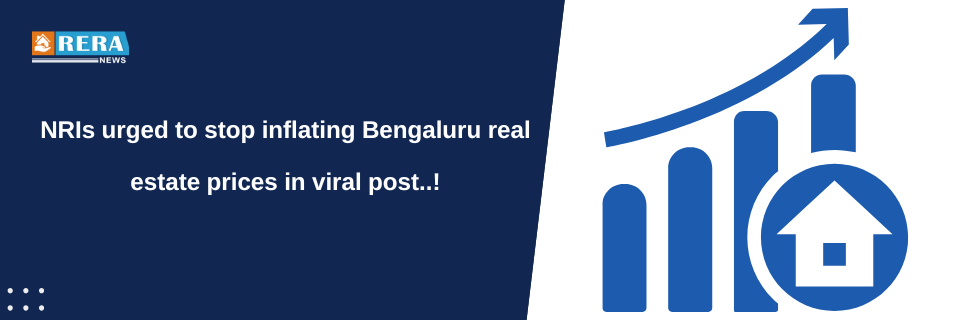
In India’s booming real estate market, homeownership is becoming increasingly unattainable. Property prices in major cities like Mumbai and Bengaluru are soaring, driven by rising demand, escalating construction costs, and a dwindling supply of affordable housing. While luxury developments are rapidly expanding, middle-class buyers find themselves struggling to afford even basic housing. This growing disparity is sparking debates about the long-term sustainability and fairness of the real estate sector.
A viral post recently highlighted concerns about Bengaluru’s skyrocketing property prices, particularly among Non-Resident Indians (NRIs) investing in the market. The post warned that NRIs are inadvertently contributing to inflated prices, making homeownership even more difficult for local buyers. One user shared their experience of avoiding Bengaluru real estate investments, stating that those who invested post-2021 have either lost money or barely broken even, even when accounting for inflation.
With property rates in metro cities climbing to unprecedented levels, many are questioning whether the market is driven by genuine demand or speculative pricing. As luxury projects dominate new developments, middle-class homebuyers are left with limited and overpriced options. The imbalance has led to growing frustration among prospective buyers, many of whom believe the current trend is unsustainable.
The debate over India’s real estate pricing extends beyond affordability. Critics argue that unchecked price inflation could eventually lead to market stagnation, forcing both investors and homebuyers into financial uncertainty. The viral discussion highlights the urgent need for a more balanced approach to real estate development—one that prioritizes affordability alongside luxury housing. As concerns continue to mount, policymakers and industry leaders may need to reassess strategies to ensure long-term market stability.
© 2023 Rera News. All rights reserved.